SESSION CHART | PROGRAM DETAILS | SESSION SLIDES | SPEAKER DETAILS | PAST CONFERENCES
 Voir en français
Voir en français

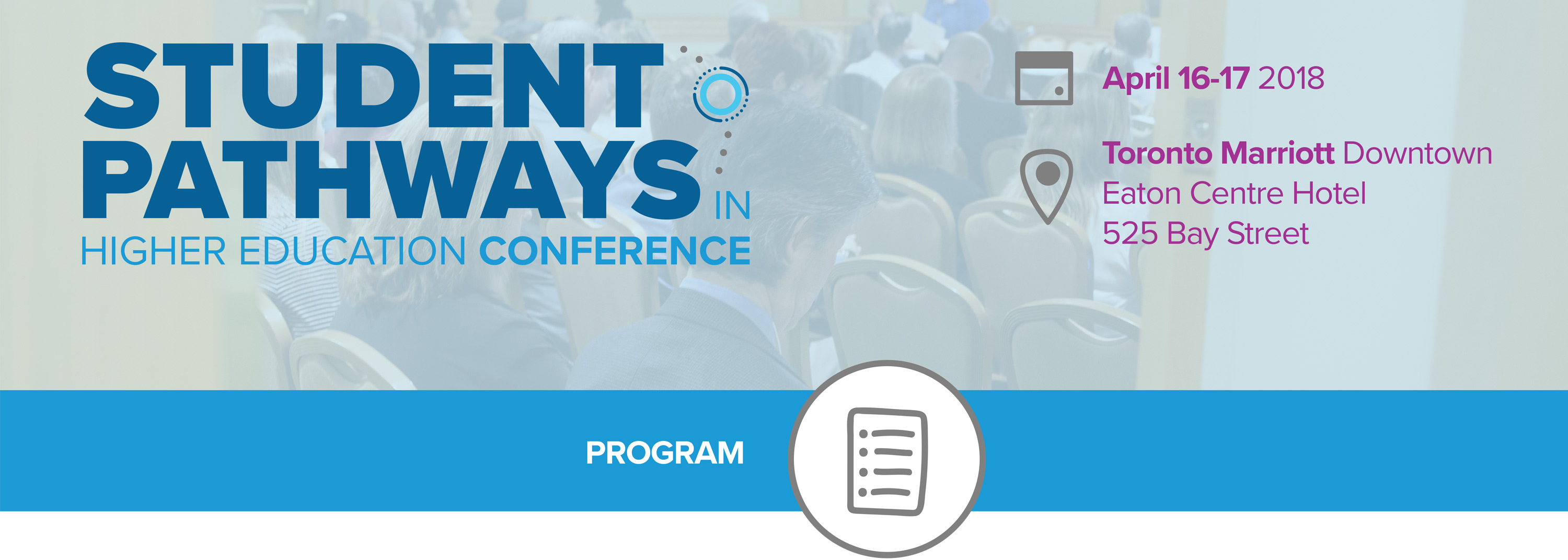 @ONTransfer
@ONTransfer
Dwayne Matthews – Learning in the 21st Century: Why It's Different, Why It Matters, & How to Help Ontario's Students Thrive in It
Stephen J. Handel – Transfer Contradictions & Contributions: Creating Transfer-Affirming Academic Cultures
Panel – Shifting the Landscape: A Framework for Creating Pathways in Indigenous Education
Block A
A1 SPEED NETWORKING S. Chwalek, S. Fuchs
A2 Pathways in Engineering D. Yokum, E. Tremblay, C. Peirone, J. Stagner
A3 Advancing Student Mobility for Canada J. Duklas, C. Hack
A4 Shedding Light on the Next Generation of Mobile Students A. Wiens, M. Fritz
Block B
B1 Visualizing Transfer Web App B. Frank, R. Turner, M. Pierce, V. Mago
B2 Streamlining the Transfer Process A. Wingate, K. McCartney-Young, K. Marriott, C. Cripps, A. Wilson, M. Newhook
B3 Faculty Fellows Pilot P. Lavoie, M. Idrissi, C. Pyne, N. Kestenbaum, N. Luckai
B4 College-to-University Transfer Support Services: Cultural Shifts towards Integration S. Lamoureux, J. Daoust, S. Davis, K. D’Souza
Block C
C1 Meet the Speaker Stephen Handel
C2 Building Pathways between Degrees and Graduate Certificates J. Jaffray, L. Cohen, B. Brockerhoff-Macdonald, J. Dickinson
C3 Hopes and Hurdles Ontario College Degree Graduates in Graduate School MC Lennon, J. Condie, A. Militano
C4 Transfer Pathways to University for Ontario College Students with a Disability U. McCloy, K. Williams
Block D
D1 The Student Experience A. Mushtaq, O. Dagbo, M. Siekanowicz, N. Alideeb, T. Hodge
D1 - Canadian Federation of Students-ON
D2 Best Practices in Transfer Bridging Seminars A. Heppner, N. Luckai, J. Orr
D2 - Annotated Bibliography of Bridging Research
D2 - Bridge Evaluation Survey Sample
D2 - ONCAT 2018 Kahoot Results Summary
D2 - Sample - General Bridging Course Outline
D3 Learning Outcomes for Transfer – Publication Project: Preliminary Recommendations C. Arnold, M. Wilson, J. Bridge, M.C. Lennon
D4 Open SIMS: A New Tool for Understanding Student Mobility Trends K. Pratt, M. Clarke, M. Hicks, A. Kaufman
Block E
E1 Meet the Speakers Plenary Panel
E2 Innovative Pathways for Apprenticeship Business Skills Training S. Larwill, R. Overeem, M. Lamontagne
E3 Connecting Occupational and Educational Pathways G. Moodie, N. Taj, J. Hounsell
E4 Expanding the Culture of Mobility T. Howieson
Block F
F1 Degree Transfer Advising: Beyond the Basics V. Baker, K. Beamish, J. Kloosterman
F2 Toronto Community Collaboration for Access to PSE S. Baker, E. Mezin, N. Lane, A. Bertin, L. Sladden-Atkinson
F3 The Education Longitudinal Linkage Platform (ELLP): Linking Data for Insights into Student Pathways and Graduate Outcomes E. Greenlee, C. Hinchley
![]()
| Mon April 16 | Creating Connections | Mobility Models | New Frontiers | Data Driven |
| 8:45-9:45 am | Annual General Meeting | |||
| 10:00-11:15 am | Opening Remarks & Land Acknowledgment Dwayne Matthews – Learning in the 21st Century: Why It's Different, Why It Matters, & How to Help Ontario's Students Thrive in It |
|||
| BLOCK A (60min) 11:30-12:30 pm |
A1 SPEED NETWORKING S. Chwalek, S. Fuchs York AB |
A2 Pathways in Engineering D. Yokum, E. Tremblay, C. Peirone, J. Stagner Trinity 3 |
A3 Advancing Student Mobility for Canada J. Duklas, C. Hack) Trinity 4-5 |
A4 Shedding Light on the Next Generation of Mobile Students A. Wiens, M. Fritz Trinity 1-2 |
| 12:30-1:20 pm | Lunch & Remarks – The Hon. Mitzie Hunter, M.P.P., Minister of Advanced Education and Skills Development | |||
| BLOCK B (60min) 1:30-2:30 pm |
B1 Visualizing Transfer Web App B. Frank, R. Turner, M. Pierce, V. Mago York AB |
B2 Streamlining the Transfer Process A. Wingate, K. McCartney-Young, K. Marriott, C. Cripps, A. Wilson, M. Newhook Trinity 4-5 |
B3 Faculty Fellows Pilot P. Lavoie, M. Idrissi, C. Pyne, N. Kestenbaum, N. Luckai Trinity 3 |
B4 College-to-University Transfer Support Services: Cultural Shifts towards Integration S. Lamoureux, J. Daoust, S. Davis, K. D’Souza) Trinity 1-2 |
| 2:30-2:45 pm | Refreshments | |||
| 2:50-3:50 pm | Stephen J. Handel – Transfer Contradictions & Contributions: Creating Transfer-Affirming Academic Cultures | |||
| BLOCK C (40min) 4:00-4:40 pm |
C1 Meet the Speaker Stephen Handel Trinity 3 |
C2 Building Pathways between Degrees and Graduate Certificates J. Jaffray, L. Cohen, B. Brockerhoff-Macdonald, J. Dickinson Trinity 1-2 |
C3 Hopes and Hurdles Ontario College Degree Graduates in Graduate School MC Lennon, J. Condie, A. Militano Trinity 4-5 |
C4 Transfer Pathways to University for Ontario College Students with a Disability U. McCloy, K. Williams York AB |
| 4:45-5:45 pm | Reception in the CATfé | |||
| Day 2 April 17 | Creating Connections | Mobility Models | New Frontiers | Data Driven |
| 7:45-8:45 am | Breakfast | |||
| BLOCK D (60min) 9:00-10:00 am | D1 The Student Experience A. Mushtaq, O. Dagbo, M. Siekanowicz, N. Alideeb, T. Hodge Trinity 1-2 |
D2 Best Practices in Transfer Bridging Seminars A. Heppner, N. Luckai, J. Orr Trinity 3 |
D3 Learning Outcomes for Transfer – Publication Project: Preliminary Recommendations C. Arnold, M. Wilson, J. Bridge, M.C. Lennon York AB |
D4 Open SIMS: A New Tool for Understanding Student Mobility Trends K. Pratt, M. Clarke, M. Hicks, A. Kaufman Trinity 4-5 |
| 10:00-10:15 am | Refreshments | |||
| 10:20-11:45 am | Panel – Shifting the Landscape: A Framework for Creating Pathways in Indigenous Education | |||
| BLOCK E (40min) 12:00-12:40 pm | E1 Meet the Speakers Plenary Panel York AB |
E2 Innovative Pathways for Apprenticeship Business Skills Training S. Larwill, R. Overeem, M. Lamontagne Trinity 3 |
E3 Connecting Occupational and Educational Pathways G. Moodie, N. Taj, J. Hounsell Trinity 4-5 |
E4 Expanding the Culture of Mobility T. Howieson Trinity 1-2 |
| 12:40-1:45 pm | Lunch | |||
| BLOCK F (40min) 2:00-2:40 pm | F1 Degree Transfer Advising: Beyond the Basics V. Baker, K. Beamish, J. Kloosterman Trinity 1-2 |
F2 Toronto Community Collaboration for Access to PSE E. Mezin, O. Edwards, A. Bertin, N. Lane York AB |
F3 The Education Longitudinal Linkage Platform (ELLP): Linking Data for Insights into Student Pathways and Graduate Outcomes E. Greenlee, C. Hinchley Trinity 4-5 |
|
Click here for a printable version of the detailed program.
Delegate List
Note: All Conference sessions take place on the lower Convention Level of the Marriott Downtown Eaton Centre Hotel.
Monday, April 16, 2018
The exponential convergence of a number of technological fields has fueled paradigmatic shifts around economies and education. The automation of work has intensified labor force transformations, yet most of our current systems and infrastructure are neither responsive to, nor prepared for this changing landscape. Dwayne Matthews will discuss some of the drivers behind this shift, and how postsecondary institutions will have massive opportunities if they meet this transition head on. Regions that get it right will earn their place as international educational hubs.
11:30 am – 12:30 pm
Breakout Sessions – Block A
Kick off your conference experience with a structured networking session designed to help you get to better know, and learn from, other delegates passionate about student mobility.
Hear from two ONCAT-funded pathway projects in Engineering. Reflect on these initiatives’ successes, challenges, and lessons learned, and on applicability of implementation at your own campus.
Canada’s ARUCC Groningen & Student Mobility Initiative is a multi-year project with the
vision of advancing national and international student mobility through trusted next generation data exchange. Recently, funding from ONCAT and formal support from CRALO and OURA, has been provided to conduct an additionally Ontario focused examination. The session will review work-to-date, next steps, and project goals, including improved data exchange to:
- Facilitate students accessing and sharing achievements with others
- Maximize institutional efficiencies
- Minimize fraud by connecting Canadian institutions, application centres and data hubs directly to trusted international student data exchange providers, regulatory bodies, and others
Our partners include the Pan-Canadian Consortium on Admissions and Transfer (PCCAT), the Canadian
Post-secondary Education Standards Council (CanPESC), and the Canadian University Council of Chief Information Officers (CUCCIO). We are actively seeking endorsements for the project – join our growing list from across Canada.
Tracking the mobile student, and better understanding their journey has always been seen as a challenge, leaving many decision-makers guessing at students’ needs. As transfer becomes increasingly prevalent and mainstream, the Ontario Council on Articulation & Transfer (ONCAT) and the Ontario College Application Service (OCAS) collaborated to explore new and innovative ways of procuring data to better understand student mobility. The session will share recently analyzed application patterns of students, using transcript transfer requests from both OCAS and OUAC (the Ontario Universities’ Application Centre). The results are presented across three populations (all students, first generation students, and indigenous students), and examine transfer patterns along region, college and university, and area of study.
1:30 pm – 2:30 pm
Breakout Sessions – Block B
Using primarily ONCAT-funded projects, a web application was created that uses visualization to compare the learning outcomes of courses and programs. Learn how this can help you make decisions about transfer.
Hear from three large universities on how they streamlined their transfer processes to better support students. Reflect on these initiatives’ successes, challenges, and lessons learned, and on applicability of implementation at your own campus.
The session begins with a brief comparative analysis of data on transfer student success, before and after the implementation of college-transfer specific support services at the University of Ottawa (uOttawa). Join in an exploratory discussion on how a shift from "silo type" services to more universal and dynamic programming in all faculties is possible, and how this might support the college-transfer pathway to evolve from "non-traditional", to an expected and valued point of entry into different stages of the university academic journey.
For over 100 years students in community colleges seeking a baccalaureate degree—as well as access to the best postgraduate and lucrative career opportunities—have had to traverse a kind of academic purgatory in search of an appropriate institution that might offer them safe-haven and the opportunity to excel educationally. Advocates at two- and four-year institutions have devoted themselves for decades toward the creation of pathways that are as rich academically as they are efficient institutionally. As the need for an educated populace becomes ever more important, the transfer pathway is receiving extraordinary attention as a cost-effective way to increase educational attainment in ways that respect the changing landscape of learners. As advocates for our students and the transfer pathway, what are the strategies and, most centrally, the values we will offer to advance this important trend?
4:00 pm – 4:40 pm
Breakout Sessions – Block C
Inspired by the plenary session by Stephen Handel and want more? Join in an open discussion with Dr. Handel and fellow delegates to delve deeper into the challenges of advancing educational access and equity for all students. Learn more about Dr. Handel’s work, as the University of California’s first Director of Community College Transfer Enrolment Planning, where he initiated strategic enrolment policies focusing on the needs of community college transfer students.
Two new pathways developed between degrees and Ontario College Graduate Certificates will be shared. One is a more traditional post-degree pathway to the graduate certificate between Algonquin College’s Bachelor of Public Safety and their fully online Emergency Management graduate certificate. The other is a joint degree and graduate certificate between Laurentian University’s Bachelor of Psychology and Algonquin College’s Autism and Behavioural Science graduate certificate. Discuss how degrees and graduate certificates can ladder into one another to promote maximum employability for our graduates.
The session will report on the initial findings of a joint research initiative of 9 Ontario Colleges and the Postsecondary Education Quality Assessment Board (PEQAB) that examines where College Degree Graduates (CDGs) go to graduate school and how they fare. Preliminary findings from semi structured interviews with hundreds of college alumni and the college registrars are unpacked to understand the largely unknown academic trajectory of CDG’s. Other project objectives including identifying trends in applications, promising practice in policies, and relationships between college programs and university graduate school programs will also be explored.
Students with disabilities access PSE, particularly university, at lower rates than those without disabilities. The session will use the MAESD Ontario College Graduate Outcomes Survey to compare transfer rates to university for recent college graduates who report a disability versus those who do not and explore the question of whether enhancing such transfer pathways may increase university participation rates for students with disabilities. A comparison of program and institution choice, and the transfer experience by reported disability status will also be shared.
Tuesday, April 17,2018
9:00 am – 10:00 am
Breakout Sessions – Block D
Learn about the key factors in the transfer student transition experience, informed by qualitative and quantitative evaluation data and ‘lessons learned’ in the piloting of two bridging seminar course sections at Lakehead University, and developed based on best practices from previous ONCAT-funded pathway and research projects (2015-01; 2015-10).
With the recent development of the Open SIMS (Student Information Management System) proof of concept tool by the Ministry of Advanced Education & Skills Development (MAESD), an exciting new wealth of data about Ontario postsecondary students is becoming available. Using student level enrolment data, including the OEN, Open SIMS contains preliminary analytical tools which allow users to better monitor student mobility throughout the province. The Higher Education Quality Council of Ontario (HEQCO) has worked closely with the Open SIMS team at MAESD to produce an initial publication using the postsecondary mobility data, on “Differentiation within the Ontario College System: Options and Opportunities”. Learn about the next steps for this project, and how this tool can be applied to build sector resources for improved student mobility.
The panel will present the work of Confederation College, First Nations Technical Institute and Trent University on a research and framework-development project for the creation of pathways in Indigenous education. Panelists will provide an overview of the research conducted with key informants in the field of Indigenous education, and the Framework developed out of this research, titled “Shifting the Landscape”. The metaphor of “shifting the landscape” indicates a need not only to promote innovative approaches to pathways creation but to also transform the surrounding context so that these pathways are concrete, sustainable, and informed by the TRC’s Calls to Action. Finally, panelists will share examples of their work towards “shifting the landscape” through two case study projects on creating “Pathways for Indigenous Learners across Ontario’s Postsecondary”, and on “Pathways Emerging from Community-based Delivery of Programs”.
12:00 pm – 12:40pm
Breakout Sessions – Block E
In response to a Colleges Ontario provincial task force to review the apprenticeship system, processes for improvements, and to increase training opportunities for both apprentices and journeypersons, Algonquin and Canadore colleges co-led the development of a 2-year, fully online Ontario College diploma program in Business – Trades. The development of this provincially collaborative initiative was funded by eCampusOntario and involved multiple OntarioLearn college partners. This truly innovative program provides apprentices and journeypersons who possess their Certificate of Qualification with accelerated and flexible pathways to develop the skills necessary to plan and manage a business. The session will review and discuss the program’s development and novel approach to governance, quality assurance, and marketing.
The session will review data from the National Household Survey 2011 on the numbers of workers and their qualification types in professional occupations (ex. registered nurse, engineer); intermediate occupations (ex. registered practical nurse, technician, and technologist); and potential pathway occupations (ex. personal support worker, engineering trades and operators). It will reflect on how strengthening occupational pathways may impact related educational pathways, and how this can inform future policy and research.
How does an institution use values and best practices to move the institution further along the culture of mobility spectrum? The session will explore this question, through an ONCAT-funded research project that extrapolated previously identified best practices, mapped both value and behavioural drivers on a cultural spectrum, and measured the cultural effect of applying a new best practice at each participating institution.
2:00 pm – 2:40 pm
Breakout Sessions – Block F
What is advisement and what does it mean in the context of working with students who want to know what their pathway options are? If understanding eligibility criteria, admission requirements, and the amount of credit being granted is challenging at times for us as professionals, then how can we expect students to have the ability to maneuver the system seamlessly? The session will provide participants with an understanding of Seneca’s Degree Transfer Advisement model, strategies to support your student advisement experience, and an opportunity to ‘test’ your advisement skills!
The Education Longitudinal Linkage Platform (ELLP), is a platform that helps facilitate richer analytical uses of the administrative data that Statistics Canada already collects. The session will highlight the progress that has been made on the ELLP over the last year on graduate outcomes, as well as some exploratory longitudinal analysis completed on students who obtain multiple credentials. Learn about the upcoming development of pan-Canadian indicators on student pathways and graduate mobility, as well as other possible uses for the data.
Stephen J. Handel has over 30 years of experience in the higher education sector. He has recently been named the first Executive Director of Higher Education Assessment Use for the College Board – a not-for-profit organization created to expand access to higher education, with a membership of over 6,000 of the world’s leading educational institutions. In this capacity, he consults with college and university enrollment leaders in the development of fair and effective psychometric measures and other information that benefits students seeking access to higher education. 
Dwayne Matthews Dwayne Matthews is a life and education strategist. He converges and shares knowledge on education, disruptive technology, practical psychology, and the evolution of work.

S. Brenda Small, Vice President, Centre for Policy in Research in Indigenous Learning S. Brenda Small, has led many access, liberal arts and Indigenous education initiatives for 24 years. Brenda has developed several certificate and diploma programs and degree studies in Indigenous Leadership and Community Development. An experienced speaker and facilitator, Brenda has worked with Indigenous community partners and the College’s Indigenous education leaders at Negahneewin Council to advance the interests of Indigenous learners. Brenda is the matriarch of her family in Moose Factory, Ontario and northern Minnesota. She belongs to the northern Cree Nation in Quebec and grew up in northern Ontario.  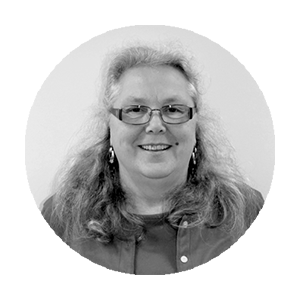
Dr. Joyce Helmer, Research Associate, Centre for Policy and Reserch in Indigenous Learning Dr. Joyce Helmer is Anishinaabe with ancestral roots in Kitigan Zibi, Quebec. She has lived most of her life in Northern Ontario and has worked in Indigenous postsecondary education for over 40 years. She holds the rank of Associate Professor at the Northern Ontario School of Medicine and is the Chair of the Indigenous Admissions Committee.
|
Dan Longboat, Moderator; Director, Indigenous Environmental Program, Trent University Dr. Dan Longboat “Roronhiake:wen…He Clears the Sky”, Turtle Clan of the Mohawk Nation, a Citizen of the Haudenosaunee; The Six Nations Confederacy from Ohswe:ken, at the Grand River Territory.
Dr. Don McCaskill, Professor, Indigenous Studies, Trent University Dr. Don McCaskill has been a Professor of in the Department of Indigenous at Trent University for 46 years. He has held many positions within the university including; being Chair of the department for 13 years, the Founding Director of the Indigenous Studies PhD program (the first such program in Canada), Director of the Native Management and Economic Development program and Director of the Thailand Year Abroad program. He has taught courses in Indigenous education, urbanization, community development, politics, research methods, justice and corrections, and international development. He has conducted extensive research on these topics and published numerous articles, reports and books. Books that he has edited include, Indian Education in Canada Volumes 1 and 2 and Development or Domestication: Indigenous Peoples in Southeast Asia. He was the Research Director for the Toronto Aboriginal Research Project and Urban Aboriginal Task Force (studies of six cities in Ontario). He has been a member of the First Circle for the ONCAT Pathways project for four years.
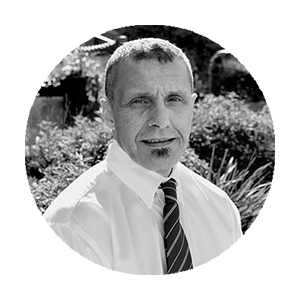
David Marasco, University Registrar, Algoma University As a member of the AU community for the past 26 years, David Marasco has been University Registrar for the past ten years with extensive experience in partnerships including secondary schools, community colleges, universities and international institutions. He has championed many partnership efforts working collegially and collaboratively with the best interests of the student at the forefront. David has worked with credit transfer/pathways and curriculum assessment for almost 20 years. While serving on many Senate committees, David has gained valuable experience both administratively, strategically while incorporating the institution's mission to support the Anishinaabe language and culture. Other portfolios he is responsible for include the Student Success team which is responsible for strategies to support student retention and success, as well, he is the Director of Institutional Research.  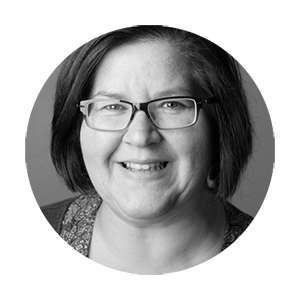
Jeannette Miron, Registrar and Director, Strategic and Enrolment Services, Canadore College Jeannette Miron has worked in the Ontario College and University system for over seventeen years. She has progressed through various roles in her career and is currently the Registrar and Director, Strategic Enrolment services at Canadore College in North Bay. Pathways and transfer credit fall within her portfolio. She has been an active participant in transfer and mobility initiatives at her institution and provincial working groups for the past seven years.
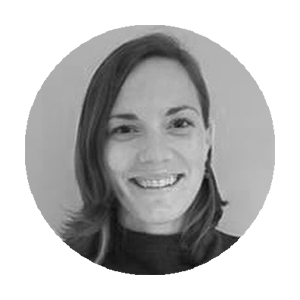
Emily Willson, Project Manager- Centre for Policy and Research in Indigenous Learning Emily holds a MA degree from Trent University where she gained experience in conducting community-based, mixed-methods research in the context of Indigenous food security. She also completed a Bachelor of Applied Science (honours) in Applied Human Nutrition and the University of Guelph. Previously, she was a Teaching Assistant and a Resource Centre coordinator for the Indigenous Environmental Studies/Sciences program (Trent), which provided her with opportunities to learn about and gain experience in Indigenous education within postsecondary. |
Copyright © 2018 ONCAT. All Rights Reserved. • ONCAT is funded by the Government of Ontario